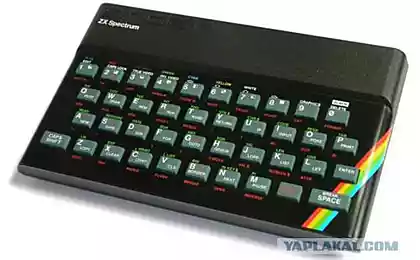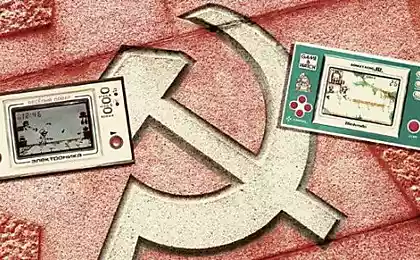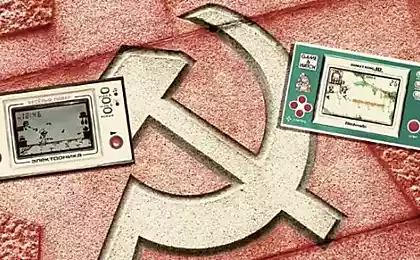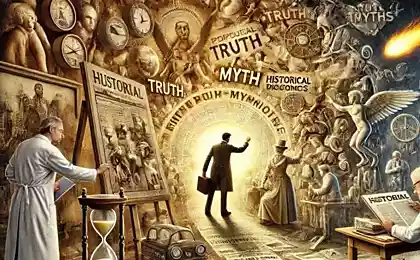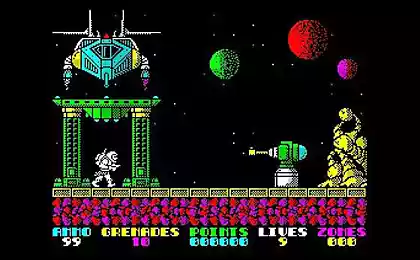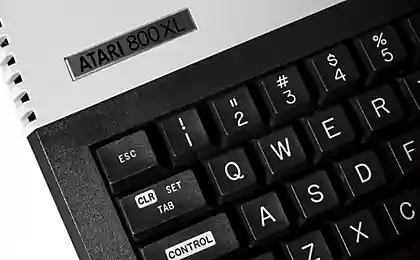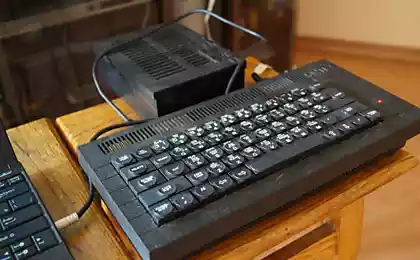1417
History ZX Spectrum Myths and Reality
Do you know what was the first mass personal computer? Why the era of personal computers? Some may even remember my very first computer, which is a ZX Spectrum. He is the ancestor of all sovremenyyh computers. ZX Spectrum stayed on the market for over 10 years. We'll tell you about the history of the Spectrum, saturated with lots of interesting facts, myths and misconceptions.
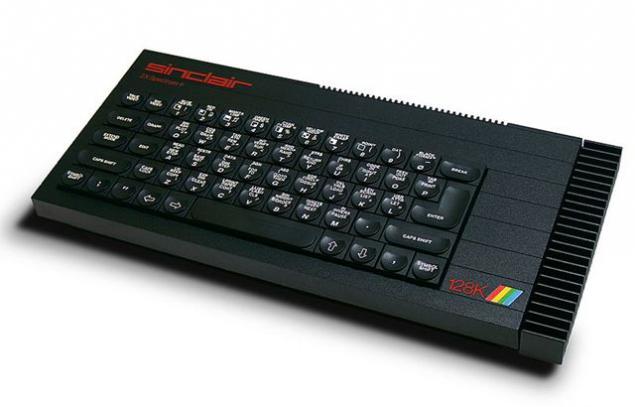
To get started, tell about a man who is considered the founder of ZX Spectrum. This is Clive Sinclair (Clive Marles Sinclair)
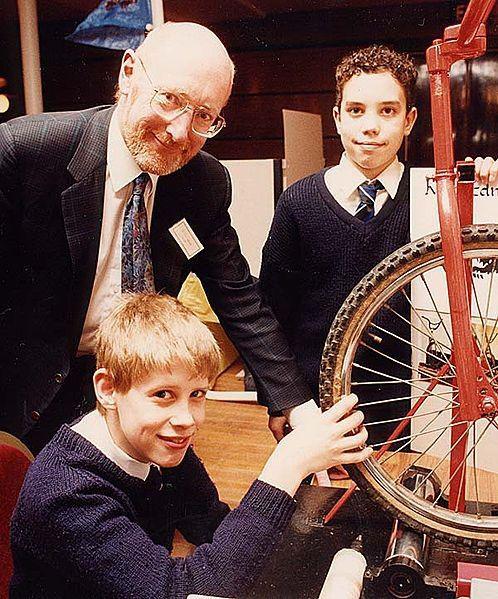
Clive Sinclair Marlz born in Surrey (Surrey), a Richmond, July 30, 1940. His father and grandfather were engineers. Clive himself followed the same footsteps. In 1962 Sinclair creates Sinclair Radionics, produces kits for assembling radios and audio amplifiers. The company is rapidly growing reputation of a pioneer in consumer electronics. Since 1972, the company produces electronic watches, portable TVs and tools. In July 1979, Clive Sinclair resigns from Sinclair Radionics and ucherezhdaet new company Sinclair Research Ltd. From here begins the story of our ZX Spectrum. The first product produced by Sinclair ZX80 in February 1980, it was the first computer in the world worth less than £ 100. Its dimensions are 218 X 170 X 50mm and weighed 340 grams. ZX 80 had not been a very good, however it started pretty good prodavatsya.
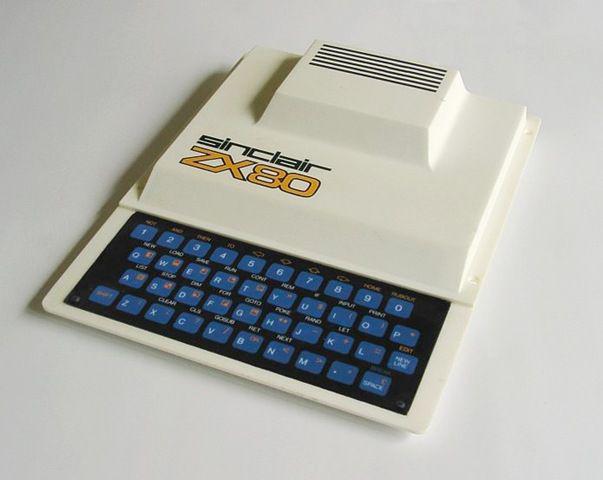
In 1981 followed a logical new release - Sinclair ZX81. It was much cheaper than its predecessor, and cost 69 pounds. In the two years was made more than a million ZX81 Sinclair and earned more than 400 million pounds. After the sale of 10% shares of the company and the distribution of 5% of shares to its employees, it has retained a 85% stake, which gave him the opportunity to take ambitious and unprofessional solution.
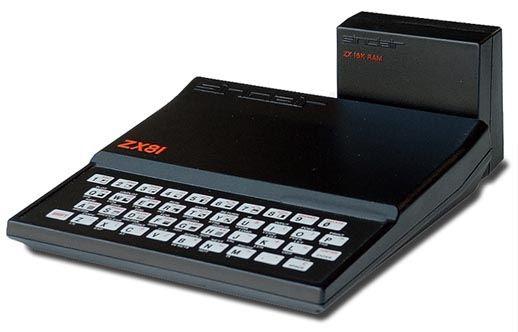
In the wake of the success of Sinclair Research released his most popular computer. This happens in 1982. «ZX Spectrum 48" has 16 KB of ROM, which was stitched in a dialect of BASIC, called Sinclair BASIC. The same program ROM provides the basic input-output and user interface. With the release of ZX Spectrum was a huge problem. On the company Sinclair spilled a huge amount of orders, up to 40 thousand. Real opportunity was to produce a 5000 ZX Spectrum month. Sinclair constantly lied in an interview, has announced the release MicroDrive, which was to add extra kilobytes Spectrum model with 16 kilobytes of RAM. Plants could not cope with the huge amount of orders, there were huge queues: 40,000 people waited from 4 to 5 months a ZX Spectrum, and periodically Sinclair spoke publicly, assuring that the situation is corrected and problems behind. Soon the truth surfaced. Sinclair's reputation was severely damaged. Contrary to popular belief, Sinclair himself practically knew nothing about the architecture of computers, but took part in the development of the keyboard for ZX Spectrum. The result was awful and uncomfortable chiclet keyboard, which was soon abandoned all. Buy an extra keyboard can be had for £ 40.
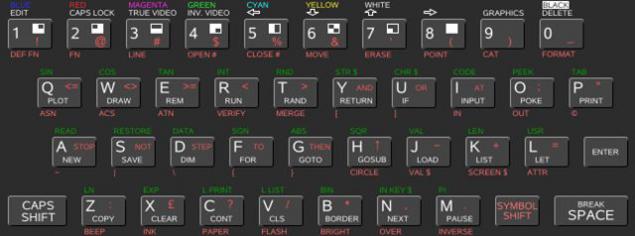
Despite the failure of the ZX Spectrum, Clive Sinclair remains extremely popular person in the UK. Mainly due to the prevalence of ZX81, whose sales accounted for 40% of the amount sold in England all computers. The company was forced to release a new version of the Spectrum, so as not to lose the trust of the users of the platform. Since June 1984 the developers are ready ZX Spectrum +, which was released in October of the same year. [8] It was «Spectrum» c 48 KB of memory, renovated housing and keyboard; appeared on the body of the reset button. Quite quickly the new model was sold twice as better than the last; Nevertheless, some retailers were talking about a high percentage of failures. In addition to all, ZX Spectrum + delivers all the same terrible keyboard
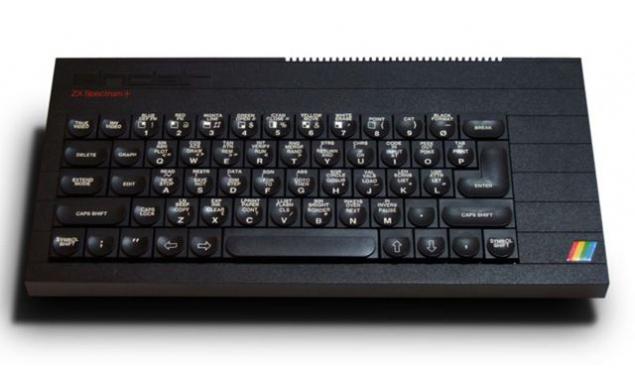
What followed next, and the latest model from Sinclair Research. This ZX Spectrum128. «Sinclair Research» developed the ZX Spectrum 128, together with its Spanish distributor «Investronica». «Investronica» helped adapt «ZX Spectrum +» to the Spanish market after the Spanish government levied a special tax on all computers with memory of 64 KB or less, do not support the Spanish language. The new model contains 128 KB of RAM, three-channel sound through the AY-3-8912, compatibility with MIDI, RS-232 port, RGB-monitor output, and 32 KB of ROM with improved BASIC redaktorom.Mashina was first introduced and launched for sale in September 1985 in the UK Ispanii.V, due to the large number of unsold «Spectrum +», the sale has been postponed until February 1986; starting price was set at 179, 95 pounds. The Z80 has a 16-bit address bus, which means that it can directly address only 64 KB of memory. To access additional 80 KB of RAM used appliances switching memory banks, so the RAM was available in the form of eight pages that are connected to the top of the address space. Likewise, to switch between the new 16 KB ROM and 16 KB of ROM original at the bottom of the address space. To use the new sonic possibilities in «Sinclair BASIC» instructions appear PLAY, to switch to «Spectrum 48K» - SPECTRUM. New guidelines have taken the place of the two existing "user defined characters", which caused compatibility problems with some old BASIC-programs.
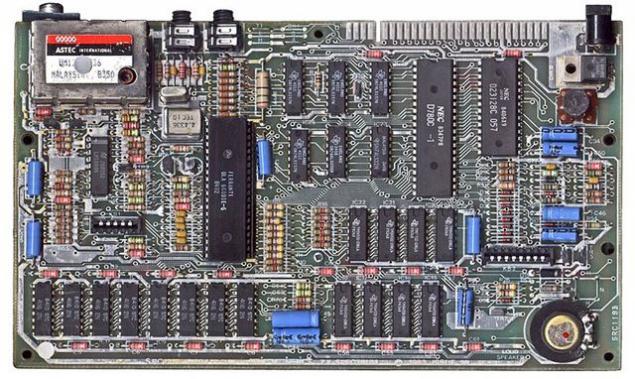
On the issue of model ZX Spectrum128 and the story ends Sinclair Research. Ends quite unexpectedly. In the 82 th and 83 th, respectively, the company's profit Clive Sinclair was 13, 5 million pounds, despite the fact that he owned 85% stake in the company. However, in 83-85 years Sir ambitious, confident of his genius, has sponsored a variety of projects, such as electric, flat screen TV and a new computer model (Sinclair QL). Design of the car he trusted the company, which specialized in the assembly of washing machines. Cars nobody bought. With flat screen TV also did not work. New computer behind the quality, power and price of their competitors. In the 85th year to avoid bankruptcy, Clive managed to persuade brand Dixons deal with him for 10 million pounds. Around the same time, his wife leaves him. Reason: banal betrayal, which lasted for several months. Apparently there Sinclair and felt that it was time to leave the computer biznesa.Bytuet opinion that Sinclair has gone bankrupt, in fact it is not. Sinclair managed to get away quite nicely and profitably. In the 86th year, the situation is improving and it seems that the company is about to snovo gets on his feet. However, the 7th of April, Sir Clive Sinclair suddenly leaves the computer industry. Upon the sale of the company, Clive gets 5 million pounds in cash. All rights to the computers Spectrum transferred to the company «Amstrad», which successfully continues to develop its line of Spectrum. Finally created a new comfortable keyboard that came to replace the mutant from Sinclair. Company «Amstrad» released ZX Spectrum +2. The vehicle had a gray body with a spring keyboard, two joystick ports and a built-in cassette, called «Datacorder» (in «Amstrad CPC 464"), but the rest of the car was completely identical «ZX Spectrum 128". The price of production was reduced, resulting in retail prices fell to 139-149 pounds. The new keyboard had no inscriptions keyword BASIC, except LOAD, CODE and RUN, are needed to run the program, but it was not a big problem, because in the "2" had a menu system, similar to the menu «ZX Spectrum 128" where you can switch between the old and BASIC 48K BASIC 128K with a set of keywords alphabetically
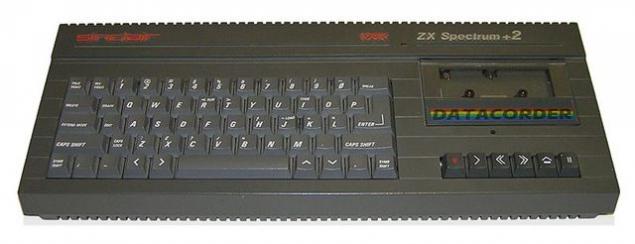
ZX Spectrum +3 looked like a model of "2", but instead kept the tape drive 3-inch floppy disks. The hull was black. The model was released in 1987 with a starting price of 249 pounds, which was later dropped to 199 funtov.Eto was the first «Spectrum», able to run the operating system CP / M without additional hardware. In the "3" appeared another 2 to 16 KB of ROM, in the form of a single chip is 32 KB. Half of this volume took the second part of the reorganized 128 ROM, the second half - Disk Operating System + 3DOS, which is essentially a modified version AMSDOS. To be able to use other operating systems memory banks switching mechanism was modified so that the RAM could be mapped to all 64K of address space. Such radical changes have led to a number of incompatibilities, some games for the 48K and 128K for a few games stopped working on the new machine. «ZX Spectrum +3» became the latest official model «Spectrum», which went into the series; production model continued until December 1990. Although at the time of sale «Spectrum» accounted for one third of all sales of home computers, «Amstrad» ceased production in an attempt to translate consumers on line «CPC»
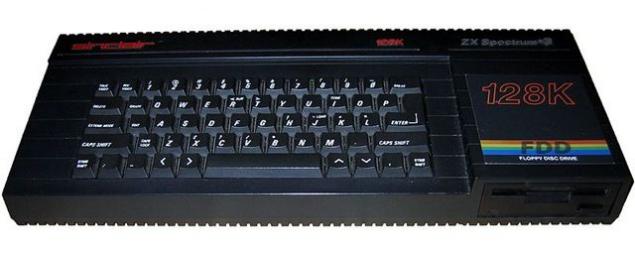
In 1987 he was released ZX Spectrum + 2A. It was made to line machines become more homogeneous. On the body still bore the inscription «ZX Spectrum +2», but the color of the case once again became black as in the first model. «+ 2A» was made on the basis of "3", the model and the 4.1 ROM with the motherboard, which was significantly reduced the number of chips - most of them were integrated into the ASIC-chip. Disk drives, and equipment for a model of "3" has been replaced with a cassette drive, as in the original "2". Originally, «Amstrad» planned to bring the disk interface, but it was never done. As in the case of «ZX Spectrum +3», some games for 48K and 128K for several games were not compatible with this model
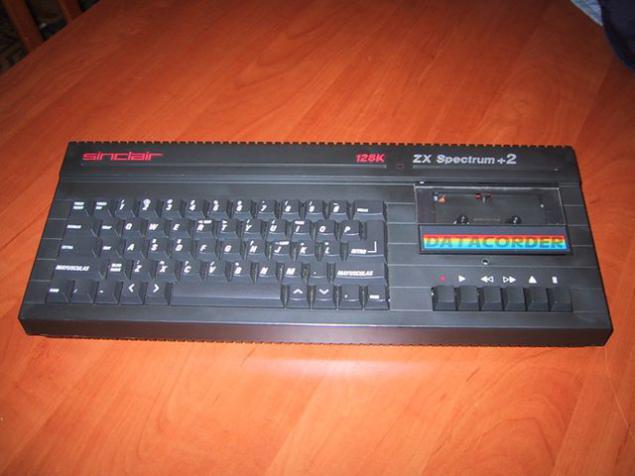
For the ZX Spectrum was created following Soup:
ZX Printer - printing device, developed by Sinclair Research Ltd for use with computers Sinclair ZX81 and ZX Spectrum, and released in November 1981. In the US, the device is manufactured by Timex Corporation under the name TS 2040 Personal Printer, Portugal - called Timex Printer
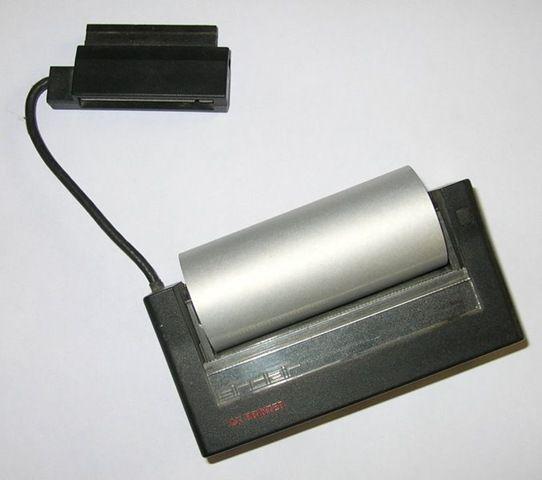
ZX Microdrive - high-speed storage device, released in 1983 by Sinclair Research for computer ZX Spectrum. Also be used for computers Sinclair QL and One Per Desk. The device is a disposable cartridge with loopback, "infinite" tape. When working with this device, it seems that you work with the drive. At the same time allowed to connect up to eight microdrives. Capacity of microdrives about 100 kilobytes
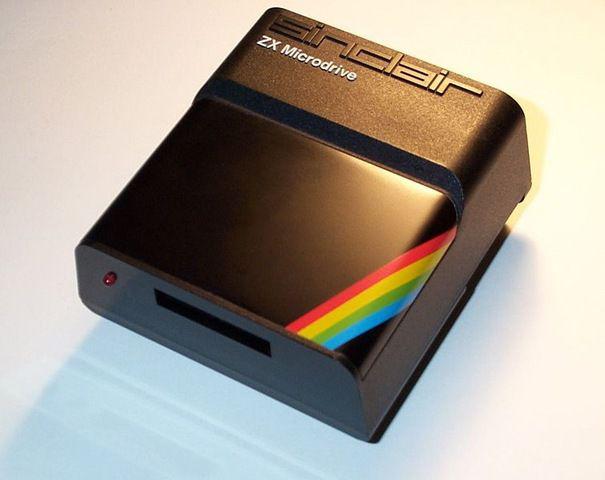
Kempston Interface - an external device to the computer ZX Spectrum, developed Kempston Micro Electronics and released in 1983 - the interface to connect a joystick. The interface is connected to the system connector ZX Spectrum and allows the use become the de facto standard Atari-compatible joysticks with DE-9 connector. The device is priced at 15, 00 pounds. Kempston Joystick looked something like this:
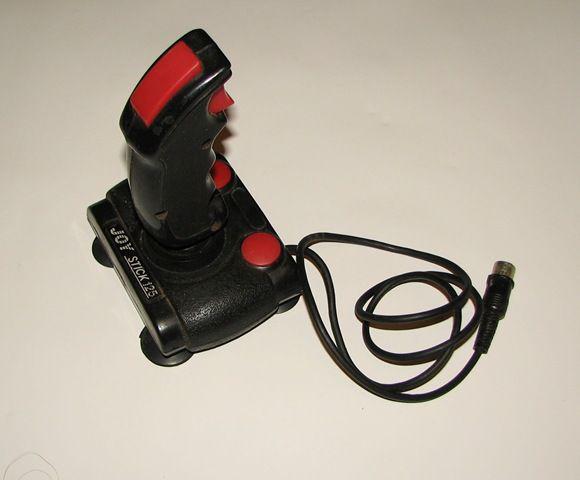
And what do the Clive Sinclair after his retirement from the business? 5 million is more than enough for him to lead a wild life. End of the 90th for Sir Sinclair can be described as a temporary Knights fun. In 2004, Sinclair scored the invention of the bicycle. He shows the world a folding bike of his own design A-bike. The uniqueness of the bike is that it can be easily folded and placed in a backpack. It should be noted that the invention is not produced any dividends. Here's how it looks "miracle of technology"

We have followed, with the start and end of the story than the legendary Clive Sinclair and his inventions. Currently, Sinclair enjoys poker. A couple of times his games on TV, his payoff is 25,000 pounds.
Finally, we present the basic myths and misconceptions related to Clive Sinclair ZX Spectrum:
Clive Sinclair was a great inventor, engineer, created the ZX Spectrum - Sinclair did not invent the Spectrum, he knew very little architecture of the PC
Clive Sinclair was not looking for commercial benefit in their products, such as profits from the sale of a single computer, even in the most difficult time not exceeding one pound - dichayschee misleading, Sinclair Spectrum earned millions
All computers, which were issued by Clive Sinclair, were advanced and better than competitors. In addition, its computers were the most widespread in the world - another misconception, were more advanced computers IBM, but they cost much more expensive
No other computer - either before or after the ZX Spectrum - and could not hold out for so long, not ustarevaya - every two years produced an improved modification of the Spectrum
Quite suddenly, for no apparent reason, Clive Sinclair ruined in 1986 - Sinclair is not bankrupt, he sold Sinclair Research for 5 million and went out of business
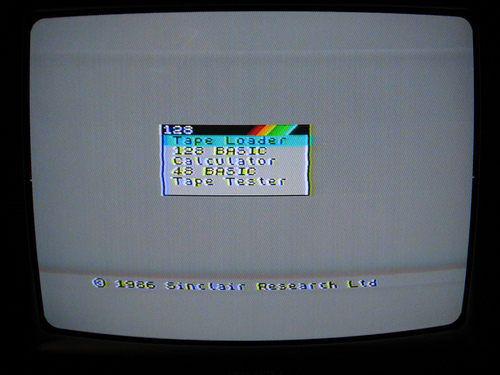
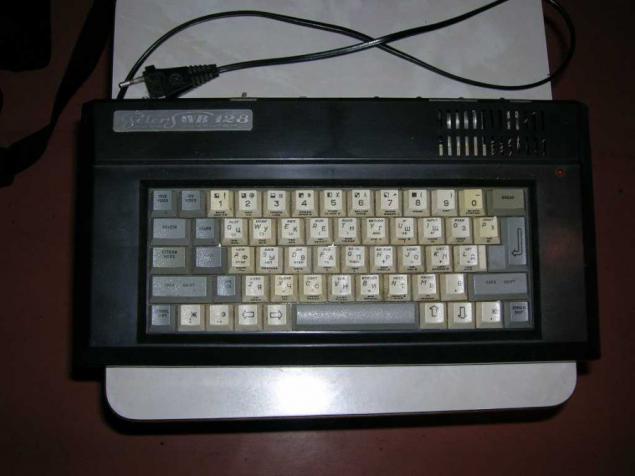
Cassettes with games !!!
x-polkovnik

To get started, tell about a man who is considered the founder of ZX Spectrum. This is Clive Sinclair (Clive Marles Sinclair)

Clive Sinclair Marlz born in Surrey (Surrey), a Richmond, July 30, 1940. His father and grandfather were engineers. Clive himself followed the same footsteps. In 1962 Sinclair creates Sinclair Radionics, produces kits for assembling radios and audio amplifiers. The company is rapidly growing reputation of a pioneer in consumer electronics. Since 1972, the company produces electronic watches, portable TVs and tools. In July 1979, Clive Sinclair resigns from Sinclair Radionics and ucherezhdaet new company Sinclair Research Ltd. From here begins the story of our ZX Spectrum. The first product produced by Sinclair ZX80 in February 1980, it was the first computer in the world worth less than £ 100. Its dimensions are 218 X 170 X 50mm and weighed 340 grams. ZX 80 had not been a very good, however it started pretty good prodavatsya.

In 1981 followed a logical new release - Sinclair ZX81. It was much cheaper than its predecessor, and cost 69 pounds. In the two years was made more than a million ZX81 Sinclair and earned more than 400 million pounds. After the sale of 10% shares of the company and the distribution of 5% of shares to its employees, it has retained a 85% stake, which gave him the opportunity to take ambitious and unprofessional solution.

In the wake of the success of Sinclair Research released his most popular computer. This happens in 1982. «ZX Spectrum 48" has 16 KB of ROM, which was stitched in a dialect of BASIC, called Sinclair BASIC. The same program ROM provides the basic input-output and user interface. With the release of ZX Spectrum was a huge problem. On the company Sinclair spilled a huge amount of orders, up to 40 thousand. Real opportunity was to produce a 5000 ZX Spectrum month. Sinclair constantly lied in an interview, has announced the release MicroDrive, which was to add extra kilobytes Spectrum model with 16 kilobytes of RAM. Plants could not cope with the huge amount of orders, there were huge queues: 40,000 people waited from 4 to 5 months a ZX Spectrum, and periodically Sinclair spoke publicly, assuring that the situation is corrected and problems behind. Soon the truth surfaced. Sinclair's reputation was severely damaged. Contrary to popular belief, Sinclair himself practically knew nothing about the architecture of computers, but took part in the development of the keyboard for ZX Spectrum. The result was awful and uncomfortable chiclet keyboard, which was soon abandoned all. Buy an extra keyboard can be had for £ 40.

Despite the failure of the ZX Spectrum, Clive Sinclair remains extremely popular person in the UK. Mainly due to the prevalence of ZX81, whose sales accounted for 40% of the amount sold in England all computers. The company was forced to release a new version of the Spectrum, so as not to lose the trust of the users of the platform. Since June 1984 the developers are ready ZX Spectrum +, which was released in October of the same year. [8] It was «Spectrum» c 48 KB of memory, renovated housing and keyboard; appeared on the body of the reset button. Quite quickly the new model was sold twice as better than the last; Nevertheless, some retailers were talking about a high percentage of failures. In addition to all, ZX Spectrum + delivers all the same terrible keyboard

What followed next, and the latest model from Sinclair Research. This ZX Spectrum128. «Sinclair Research» developed the ZX Spectrum 128, together with its Spanish distributor «Investronica». «Investronica» helped adapt «ZX Spectrum +» to the Spanish market after the Spanish government levied a special tax on all computers with memory of 64 KB or less, do not support the Spanish language. The new model contains 128 KB of RAM, three-channel sound through the AY-3-8912, compatibility with MIDI, RS-232 port, RGB-monitor output, and 32 KB of ROM with improved BASIC redaktorom.Mashina was first introduced and launched for sale in September 1985 in the UK Ispanii.V, due to the large number of unsold «Spectrum +», the sale has been postponed until February 1986; starting price was set at 179, 95 pounds. The Z80 has a 16-bit address bus, which means that it can directly address only 64 KB of memory. To access additional 80 KB of RAM used appliances switching memory banks, so the RAM was available in the form of eight pages that are connected to the top of the address space. Likewise, to switch between the new 16 KB ROM and 16 KB of ROM original at the bottom of the address space. To use the new sonic possibilities in «Sinclair BASIC» instructions appear PLAY, to switch to «Spectrum 48K» - SPECTRUM. New guidelines have taken the place of the two existing "user defined characters", which caused compatibility problems with some old BASIC-programs.

On the issue of model ZX Spectrum128 and the story ends Sinclair Research. Ends quite unexpectedly. In the 82 th and 83 th, respectively, the company's profit Clive Sinclair was 13, 5 million pounds, despite the fact that he owned 85% stake in the company. However, in 83-85 years Sir ambitious, confident of his genius, has sponsored a variety of projects, such as electric, flat screen TV and a new computer model (Sinclair QL). Design of the car he trusted the company, which specialized in the assembly of washing machines. Cars nobody bought. With flat screen TV also did not work. New computer behind the quality, power and price of their competitors. In the 85th year to avoid bankruptcy, Clive managed to persuade brand Dixons deal with him for 10 million pounds. Around the same time, his wife leaves him. Reason: banal betrayal, which lasted for several months. Apparently there Sinclair and felt that it was time to leave the computer biznesa.Bytuet opinion that Sinclair has gone bankrupt, in fact it is not. Sinclair managed to get away quite nicely and profitably. In the 86th year, the situation is improving and it seems that the company is about to snovo gets on his feet. However, the 7th of April, Sir Clive Sinclair suddenly leaves the computer industry. Upon the sale of the company, Clive gets 5 million pounds in cash. All rights to the computers Spectrum transferred to the company «Amstrad», which successfully continues to develop its line of Spectrum. Finally created a new comfortable keyboard that came to replace the mutant from Sinclair. Company «Amstrad» released ZX Spectrum +2. The vehicle had a gray body with a spring keyboard, two joystick ports and a built-in cassette, called «Datacorder» (in «Amstrad CPC 464"), but the rest of the car was completely identical «ZX Spectrum 128". The price of production was reduced, resulting in retail prices fell to 139-149 pounds. The new keyboard had no inscriptions keyword BASIC, except LOAD, CODE and RUN, are needed to run the program, but it was not a big problem, because in the "2" had a menu system, similar to the menu «ZX Spectrum 128" where you can switch between the old and BASIC 48K BASIC 128K with a set of keywords alphabetically

ZX Spectrum +3 looked like a model of "2", but instead kept the tape drive 3-inch floppy disks. The hull was black. The model was released in 1987 with a starting price of 249 pounds, which was later dropped to 199 funtov.Eto was the first «Spectrum», able to run the operating system CP / M without additional hardware. In the "3" appeared another 2 to 16 KB of ROM, in the form of a single chip is 32 KB. Half of this volume took the second part of the reorganized 128 ROM, the second half - Disk Operating System + 3DOS, which is essentially a modified version AMSDOS. To be able to use other operating systems memory banks switching mechanism was modified so that the RAM could be mapped to all 64K of address space. Such radical changes have led to a number of incompatibilities, some games for the 48K and 128K for a few games stopped working on the new machine. «ZX Spectrum +3» became the latest official model «Spectrum», which went into the series; production model continued until December 1990. Although at the time of sale «Spectrum» accounted for one third of all sales of home computers, «Amstrad» ceased production in an attempt to translate consumers on line «CPC»

In 1987 he was released ZX Spectrum + 2A. It was made to line machines become more homogeneous. On the body still bore the inscription «ZX Spectrum +2», but the color of the case once again became black as in the first model. «+ 2A» was made on the basis of "3", the model and the 4.1 ROM with the motherboard, which was significantly reduced the number of chips - most of them were integrated into the ASIC-chip. Disk drives, and equipment for a model of "3" has been replaced with a cassette drive, as in the original "2". Originally, «Amstrad» planned to bring the disk interface, but it was never done. As in the case of «ZX Spectrum +3», some games for 48K and 128K for several games were not compatible with this model

For the ZX Spectrum was created following Soup:
ZX Printer - printing device, developed by Sinclair Research Ltd for use with computers Sinclair ZX81 and ZX Spectrum, and released in November 1981. In the US, the device is manufactured by Timex Corporation under the name TS 2040 Personal Printer, Portugal - called Timex Printer

ZX Microdrive - high-speed storage device, released in 1983 by Sinclair Research for computer ZX Spectrum. Also be used for computers Sinclair QL and One Per Desk. The device is a disposable cartridge with loopback, "infinite" tape. When working with this device, it seems that you work with the drive. At the same time allowed to connect up to eight microdrives. Capacity of microdrives about 100 kilobytes

Kempston Interface - an external device to the computer ZX Spectrum, developed Kempston Micro Electronics and released in 1983 - the interface to connect a joystick. The interface is connected to the system connector ZX Spectrum and allows the use become the de facto standard Atari-compatible joysticks with DE-9 connector. The device is priced at 15, 00 pounds. Kempston Joystick looked something like this:

And what do the Clive Sinclair after his retirement from the business? 5 million is more than enough for him to lead a wild life. End of the 90th for Sir Sinclair can be described as a temporary Knights fun. In 2004, Sinclair scored the invention of the bicycle. He shows the world a folding bike of his own design A-bike. The uniqueness of the bike is that it can be easily folded and placed in a backpack. It should be noted that the invention is not produced any dividends. Here's how it looks "miracle of technology"

We have followed, with the start and end of the story than the legendary Clive Sinclair and his inventions. Currently, Sinclair enjoys poker. A couple of times his games on TV, his payoff is 25,000 pounds.
Finally, we present the basic myths and misconceptions related to Clive Sinclair ZX Spectrum:
Clive Sinclair was a great inventor, engineer, created the ZX Spectrum - Sinclair did not invent the Spectrum, he knew very little architecture of the PC
Clive Sinclair was not looking for commercial benefit in their products, such as profits from the sale of a single computer, even in the most difficult time not exceeding one pound - dichayschee misleading, Sinclair Spectrum earned millions
All computers, which were issued by Clive Sinclair, were advanced and better than competitors. In addition, its computers were the most widespread in the world - another misconception, were more advanced computers IBM, but they cost much more expensive
No other computer - either before or after the ZX Spectrum - and could not hold out for so long, not ustarevaya - every two years produced an improved modification of the Spectrum
Quite suddenly, for no apparent reason, Clive Sinclair ruined in 1986 - Sinclair is not bankrupt, he sold Sinclair Research for 5 million and went out of business


Cassettes with games !!!
x-polkovnik
